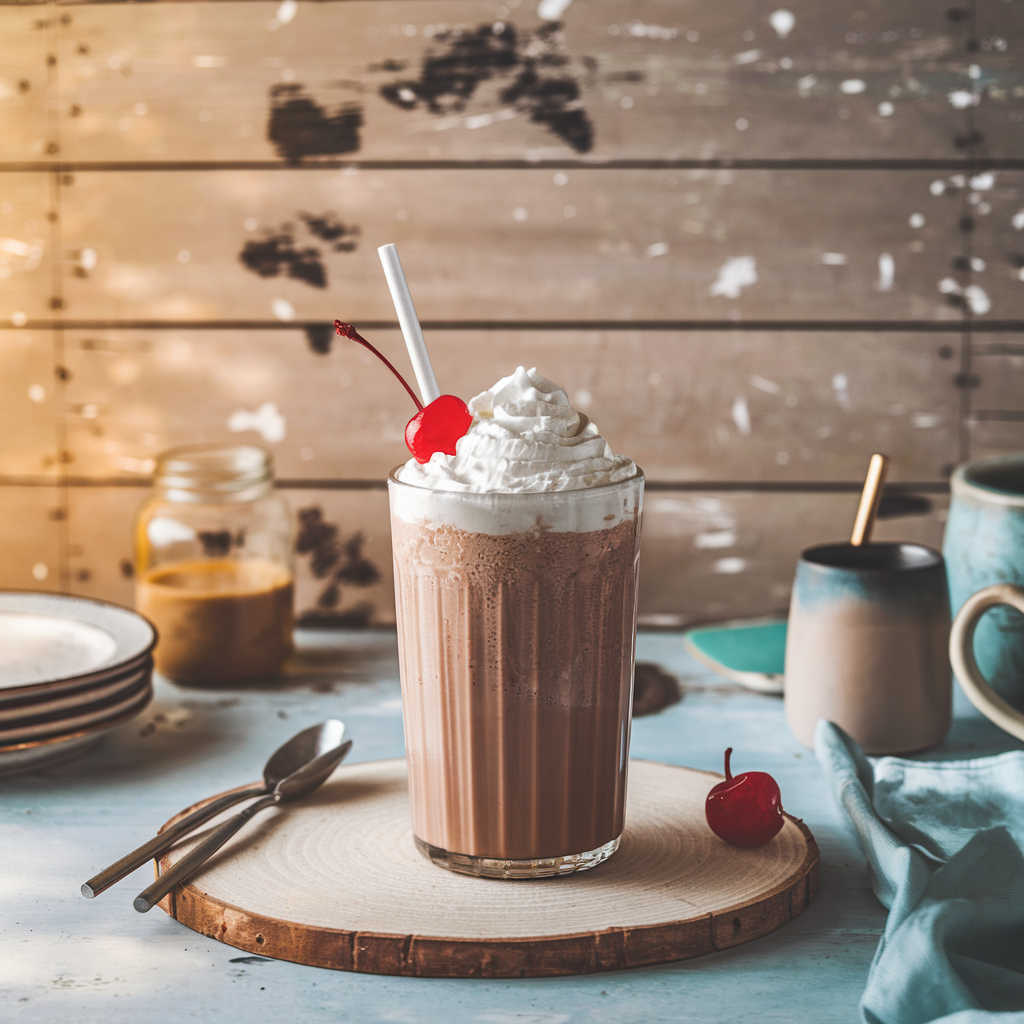Protein drinks have become an integral part of many people’s daily routines, whether for building muscle, aiding in recovery after workouts, or simply ensuring they get enough protein in their diet. But is it OK to drink protein drinks every day? In this comprehensive guide, we’ll delve into the benefits and potential drawbacks of daily protein shake consumption, exploring the nuances that can help you decide if it’s the right choice for you.
The Role of Protein in the Body
Protein is an essential macronutrient that plays a crucial role in the body. It is the building block of muscles, skin, enzymes, and hormones, making it vital for overall health. Consuming adequate protein is necessary for maintaining muscle mass, repairing tissues, and supporting metabolic functions.
Why Is Protein Important?
Protein helps the body perform a variety of functions, including:
- Muscle Repair and Growth: After physical activity, especially resistance training, your muscles need protein to repair and grow.
- Immune Function: Protein is necessary for the production of antibodies that fight off infections.
- Enzyme and Hormone Production: Proteins are involved in nearly every biochemical reaction in the body as enzymes or hormones.
Daily Protein Requirements
The Recommended Dietary Allowance (RDA) for protein varies depending on age, sex, and level of physical activity. For the average adult, the RDA is about 46 grams per day for women and 56 grams per day for men. However, athletes and those with higher levels of physical activity may require more.
Benefits of Drinking Protein Drinks Every Day
For many, protein drinks are a convenient way to meet their daily protein needs. Here are some of the primary benefits:
1. Convenience
Protein shakes are a quick and easy way to increase your protein intake, especially for those with busy lifestyles. They require minimal preparation and can be consumed on the go, making them ideal for those who may not have time to cook protein-rich meals.
2. Supports Muscle Growth
For individuals engaged in regular exercise, particularly resistance training, daily protein shakes can help optimize muscle growth and recovery. Consuming protein post-workout is crucial as it provides the necessary amino acids that muscles need to repair and grow.
3. Helps with Weight Management
Protein is known to be more satiating than carbohydrates or fats, meaning it helps you feel fuller for longer. By drinking a protein shake every day, especially as a meal replacement, you can potentially reduce your overall calorie intake, which may assist with weight management or weight loss.
4. Variety of Nutrients
Many protein drinks are fortified with vitamins and minerals, providing additional nutrients that might be lacking in your diet. Some even include fiber, probiotics, or added enzymes that aid in digestion.
5. Customizable to Dietary Needs
Protein powders come in various forms, including whey, casein, soy, pea, hemp, and collagen. This variety allows individuals to choose a protein source that fits their dietary preferences or restrictions, such as veganism or lactose intolerance.
Potential Drawbacks of Drinking Protein Drinks Every Day
While there are numerous benefits, there are also potential downsides to consider before deciding to incorporate protein drinks into your daily routine.
1. Excessive Protein Intake
Overconsumption of protein can strain the kidneys over time, especially in individuals with pre-existing kidney conditions. While the average person is unlikely to consume excessive amounts just from a daily protein shake, it’s something to be mindful of, particularly if other protein sources are abundant in your diet.
2. Lack of Whole Food Nutrients
Relying too heavily on protein shakes may lead to a deficiency in nutrients found in whole foods. Whole foods offer a broader range of nutrients, including fiber, antioxidants, and phytochemicals, that you might not get from protein powders.
3. Potential Additives and Sweeteners
Some protein powders contain artificial sweeteners, flavors, or other additives that may not be beneficial for your health. It’s important to read labels carefully and choose high-quality protein powders with minimal additives.
4. Cost Considerations
Drinking protein shakes every day can become expensive, particularly if you’re using high-quality powders. Over time, the cost of daily protein shakes can add up, making it an expensive habit.
5. Digestive Issues
Some people may experience digestive issues from certain protein powders, especially those derived from dairy like whey or casein. Symptoms like bloating, gas, or stomach cramps are not uncommon, particularly if you have lactose intolerance or sensitivity to certain ingredients.
Who Should Consider Drinking Protein Drinks Daily?
While protein drinks can be beneficial for many people, they are not necessary for everyone. Here are some scenarios where daily protein shakes might be particularly useful:
1. Athletes and Bodybuilders
For those engaged in intense training, daily protein drinks can help meet higher protein requirements that are essential for muscle repair and growth.
2. Busy Professionals
For individuals with a hectic schedule, protein drinks provide a quick, convenient source of nutrition that can prevent them from skipping meals or resorting to unhealthy fast food.
3. Older Adults
As people age, maintaining muscle mass becomes more challenging. Protein drinks can help older adults meet their protein needs, particularly if their appetite decreases or they have difficulty consuming solid food.
4. Individuals on Weight Loss Programs
Those on a calorie-restricted diet may benefit from the satiety that protein shakes provide, helping to control hunger and reduce overall calorie intake.
How to Choose the Right Protein Drink
Choosing the right protein drink is crucial to maximizing its benefits while minimizing potential downsides. Here are some factors to consider:
1. Protein Source
Decide whether you prefer animal-based (like whey or casein) or plant-based proteins (like soy, pea, or hemp). Each type has its benefits; for example, whey is quickly absorbed, making it great post-workout, while casein is slower to digest, providing a steady release of amino acids.
2. Ingredient List
Look for protein powders with a short ingredient list. The best options typically contain just the protein source and perhaps a few natural flavorings or sweeteners. Avoid those with a long list of additives, artificial sweeteners, or fillers.
3. Protein Content per Serving
Ensure that the protein content aligns with your dietary goals. Most protein powders offer between 15-30 grams of protein per serving. If you’re using the shake as a meal replacement, you might need higher protein content compared to just supplementing your diet.
4. Taste and Mixability
Taste and mixability are essential for ensuring you stick with your routine. Some protein powders can be gritty or have an unpleasant aftertaste, so it’s worth trying a few different brands or flavors to find one you enjoy.
5. Price and Value
Consider the cost per serving, especially if you’re planning to use the protein drink daily. Sometimes, paying a bit more for higher quality or better-tasting powder is worth the investment.
Common Myths About Protein Drinks
As with any popular health product, several myths surround protein drinks. Here, we’ll debunk some of the most common ones:
1. “Protein Drinks Make You Gain Weight”
Protein itself does not cause weight gain. Weight gain occurs when there is a caloric surplus, meaning you consume more calories than you burn. While protein shakes can add extra calories to your diet, they won’t cause weight gain unless they contribute to a caloric surplus.
2. “You Only Need Protein Drinks if You’re Lifting Weights”
While strength training increases protein needs, protein is essential for everyone, regardless of activity level. Protein drinks can benefit anyone who struggles to meet their protein needs through food alone, including those who do endurance sports, are recovering from an injury, or need more protein due to age or dietary restrictions.
3. “Protein Drinks Are Bad for Your Kidneys”
For healthy individuals, there is no evidence to suggest that a high-protein diet damages the kidneys. However, if you have pre-existing kidney conditions, it’s essential to consult with a healthcare provider before increasing your protein intake significantly.
4. “Plant-Based Protein Is Inferior to Animal-Based Protein”
While animal-based proteins are typically complete proteins (containing all essential amino acids), many plant-based proteins are also highly effective. By combining different plant proteins, such as rice and pea, you can achieve a complete amino acid profile that rivals that of animal proteins.
Tips for Incorporating Protein Drinks into Your Diet
If you’ve decided that drinking protein shakes every day is right for you, here are some tips to maximize their benefits:
1. Pair with Whole Foods
While protein shakes can be convenient, try to pair them with whole foods when possible. For example, blend your protein powder with fruits, vegetables, and healthy fats like avocado or nut butter for a more balanced meal.
2. Time Your Protein Intake
Timing can play a role in how effective your protein shake is. For muscle growth, consuming protein shortly after your workout can be beneficial. For weight management, having a protein shake in the morning can help curb cravings throughout the day.
3. Hydrate Well
Protein metabolism requires water, so ensure you’re drinking plenty of fluids, especially if you’re increasing your protein intake.
4. Monitor Your Total Protein Intake
If you’re drinking protein shakes every day, monitor your total protein intake to ensure you’re not consuming excessive amounts. While it’s unlikely you’ll overdo it from shakes alone, if you eat a lot of other high-protein foods, it’s something to be mindful of.
Frequently Asked Questions
1. Can protein drinks replace meals?
Protein drinks can replace meals, especially when fortified with other nutrients, but they should not be your only source of nutrition. Whole foods provide a wider range of nutrients that are essential for overall health.
2. Are protein drinks safe for teenagers?
Protein drinks can be safe for teenagers, particularly those involved in sports or with increased protein needs. However, it’s important to choose high-quality products and ensure they are not consuming excessive protein, which can strain developing kidneys.
3. How much protein is too much?
The maximum amount of protein that is generally considered safe is 2.2 grams per kilogram of body weight per day. However, individual needs can vary, so it’s best to consult with a healthcare provider or dietitian to determine the right amount for you.
4. Can I make my protein shakes healthier?
Yes! You can make your protein shakes healthier by adding fruits, vegetables, and other nutrient-dense ingredients. Avoid adding too much sugar or relying on pre-made mixes with artificial additives.
5. Are there risks associated with long-term use of protein drinks?
For most people, long-term use of protein drinks is safe. However, it’s important to choose high-quality products and to ensure your overall diet is balanced. Those with kidney disease or other health conditions should consult with a healthcare provider before making protein drinks a regular part of their diet.
Conclusion
Incorporating protein drinks into your daily routine can be a great way to meet your protein needs, especially if you’re active, have dietary restrictions, or simply need a convenient source of nutrition. While there are some potential drawbacks, choosing the right product and consuming it in moderation can help you reap the benefits without negative side effects. As with any dietary change, it’s important to listen to your body and consult with a healthcare provider if you have any concerns.


